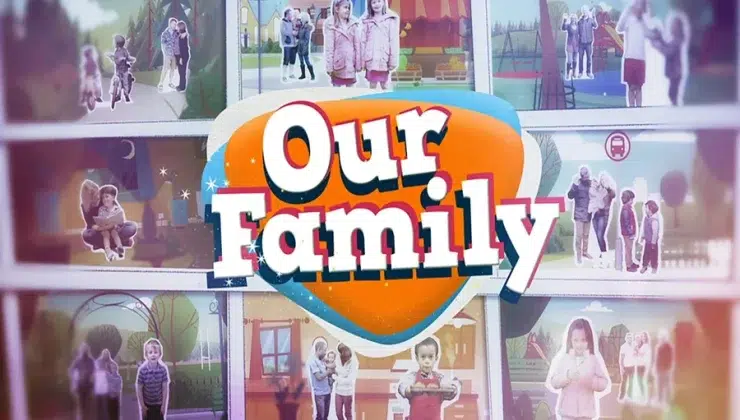Our Family: The Heart of Our Lives

Family is often described as the cornerstone of society and the foundation of our personal lives. The term “Our Family” encompasses the people we share blood ties with, as well as those we choose to consider family through love, support, and shared experiences. Whether traditional or modern, large or small, family remains a vital source of strength, belonging, and identity for most individuals.
In this article, we explore what family truly means, the different types of families, the roles family members play, and why family bonds are so important in shaping who we are.
What Does “Our Family” Mean?
“Our family” is a collective phrase that refers to a group of people connected by kinship, marriage, or close emotional ties. This group can include parents, children, siblings, grandparents, cousins, aunts, uncles, and even close friends who become like family.
More than a biological unit, family represents unconditional love, shared responsibilities, and mutual care. It is where we first learn values, traditions, and how to interact with the world around us. For many, family is a source of comfort and safety, especially during life’s challenges.
Types of Families
Families come in many forms, and the diversity of family structures reflects evolving societal values and personal circumstances. Here are some common types of families:
-
Nuclear Family: Consists of two parents and their children living together. This is often considered the traditional family model.
-
Extended Family: Includes relatives beyond the nuclear family, such as grandparents, aunts, uncles, and cousins, often living together or nearby.
-
Single-Parent Family: One parent raising one or more children independently due to separation, divorce, death, or choice.
-
Blended Family: Formed when partners with children from previous relationships unite to create a new family unit.
-
Childless Family: Couples without children, whether by choice or circumstance.
-
Chosen Family: Non-biological family formed by close friends or community members who provide support and love similar to biological family.
Understanding these types helps us appreciate that family is not one-size-fits-all but flexible and adaptable.
The Importance of Family Bonds
The relationships within our family have profound effects on our mental, emotional, and physical well-being. Strong family bonds create a network of support and security that helps individuals face life’s ups and downs.
Family members provide guidance, encouragement, and a sense of identity. They teach us about our culture, language, and history. The trust and loyalty shared within a family foster confidence and resilience, enabling individuals to pursue their goals with assurance.
Roles Within Our Family
Every family member plays a unique role that contributes to the overall functioning and harmony of the household. For example:
-
Parents often act as providers, protectors, and role models.
-
Children bring joy, vitality, and learning opportunities for parents.
-
Grandparents offer wisdom, heritage, and additional emotional support.
-
Siblings are companions, rivals, and lifelong friends who share experiences growing up.
-
Other relatives can provide additional layers of love, guidance, and social connection.
These roles may evolve over time depending on life stages, challenges, and family dynamics.
Challenges Families Face
Despite the love that binds families, they can face numerous challenges. Common struggles include:
-
Communication breakdowns that lead to misunderstandings.
-
Financial stress affecting stability and peace of mind.
-
Health issues impacting caregiving roles and emotional health.
-
Conflicts or disagreements among family members.
-
Balancing work and family life, which can strain relationships.
However, families that actively work through these challenges often emerge stronger, learning valuable lessons about patience, empathy, and forgiveness.
How to Strengthen Our Family Relationships
Maintaining strong family bonds requires effort and intention. Here are some ways families can nurture their relationships:
-
Open Communication: Encouraging honest and respectful dialogue helps resolve conflicts and build understanding.
-
Quality Time Together: Shared meals, family outings, or simply talking can deepen connections.
-
Expressing Appreciation: Recognizing each other’s efforts and qualities fosters positivity.
-
Supporting Individual Growth: Encouraging each family member’s goals and interests strengthens the whole family.
-
Celebrating Traditions: Honoring cultural or family rituals creates a sense of belonging.
-
Seeking Help When Needed: Sometimes professional counseling can aid families in navigating complex issues.
The Role of Technology in Modern Families
Technology has transformed the way families interact. Smartphones, video calls, and social media allow family members to stay connected across distances. For busy or geographically separated families, these tools can help maintain bonds.
However, it’s essential to balance screen time with face-to-face interactions to ensure meaningful relationships are nurtured. Setting boundaries around technology use can help families be more present with one another.
Family Traditions and Their Impact
Family traditions, whether big or small, create lasting memories and reinforce family identity. These can include holiday celebrations, weekly dinners, storytelling sessions, or special rituals.
Such traditions offer a sense of stability and continuity, especially for children, who find comfort in predictable routines. They also provide opportunities for teaching values, history, and cultural heritage.
Family as a Foundation for Society
On a broader scale, families are the building blocks of communities and nations. Strong families contribute to social stability and economic well-being. They nurture responsible citizens, passing on moral and ethical frameworks.
When families thrive, society benefits through reduced crime, improved education outcomes, and greater social cohesion. Therefore, supporting families is a key focus for policymakers and social programs worldwide.
Our family is a vital part of our lives that shapes our identity, values, and emotional well-being. Despite challenges, families offer unparalleled support and love that help us grow and face the world with confidence. Whether biological or chosen, every family is unique and precious.
By nurturing communication, spending quality time together, and respecting each member’s individuality, families can create a loving environment that lasts for generations. At its core, family is about connection, belonging, and unconditional love.
FAQs
Q: What defines a family?
A: Family is a group of people connected by blood, marriage, or strong emotional bonds who support and care for one another.
Q: Are chosen families as important as biological families?
A: Yes, chosen families provide vital emotional support and love and are equally meaningful to those involved.
Q: How can families handle conflicts better?
A: Open communication, empathy, and willingness to forgive are crucial for resolving family conflicts.
Q: Why are family traditions important?
A: Traditions create a sense of identity and belonging, offering comfort and continuity across generations.
Q: Can technology help families stay close?
A: Yes, technology like video calls and messaging can maintain connections, especially when family members are apart.
Q: What can I do if my family relationships feel strained?
A: Consider seeking professional counseling, practicing patience, and making intentional efforts to communicate and reconnect.
Q: How do families impact personal development?
A: Families shape values, emotional health, and social skills, laying the foundation for personal growth.
Q: Is family support important for mental health?
A: Strong family support significantly contributes to emotional resilience and overall mental well-being.
Q: How do single-parent families differ?
A: Single-parent families involve one adult raising children and may face unique challenges but are equally loving and nurturing.
Q: What role do grandparents play in families?
A: Grandparents provide wisdom, history, emotional support, and often help with caregiving.










